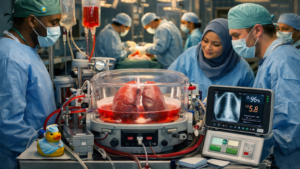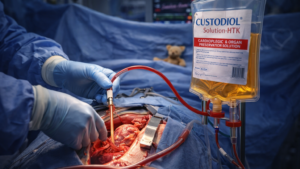Background: Acute kidney injury (AKI) is a common complication after cardiovascular surgery in children, noted in approximately 40% of children undergoing cardiopulmonary bypass (CPB). We sought to determine the risk factors including inflammatory and vascular endothelial markers associated with AKI in children undergoing cardiac surgery.
Methods: A secondary analysis of a prospective observational cohort study of paediatric patients with a cardiac defect requiring CPB and a weight of >2.5 kg was performed. AKI was defined as a 1.5 times increase from the preoperative value in serum creatinine or an absolute increase by ≥0.3 mg/dL (≥26.5 μmol/L). Plasma inflammatory markers (interleukin [IL]-1a, IL-1b, IL-2, IL-4, IL-6, IL-8, IL-10, IL-12p70, and tumour necrosis factor α) and vascular endothelial markers (vascular endothelial growth factor, von Willebrand factor, regulated on activation, normal T-cell expressed and secreted, granulocyte macrophage colony-stimulating factor, monocyte chemoattractant protein-1, platelet-derived growth factor, and microparticles) were assessed at 5 perioperative time points. Associations with AKI were found using generalized linear regression models adjusted for repeated measures.
Results: A total of 207 patients were assessed, of whom 56% (n = 116) were male. Thirty-three percent (n = 68) developed AKI. In univariable analyses, adverse outcomes significantly related to the presence of AKI included increased intensive care unit stay (3.0 vs 5.6 hours, P < 0.001). In multivariable analysis, independent factors that were significantly associated with AKI included longer duration of CPB (111 vs 154 minutes, P < 0.001) and lower preoperative creatinine. Inflammatory and vascular endothelial biomarkers were not associated with AKI.
Conclusions: AKI remains a prevalent problem after cardiac surgery, and renal ischemia related to longer bypass time potentially plays a key role in the etiology. Inflammatory and vascular endothelial biomarkers were not significantly related to AKI.







